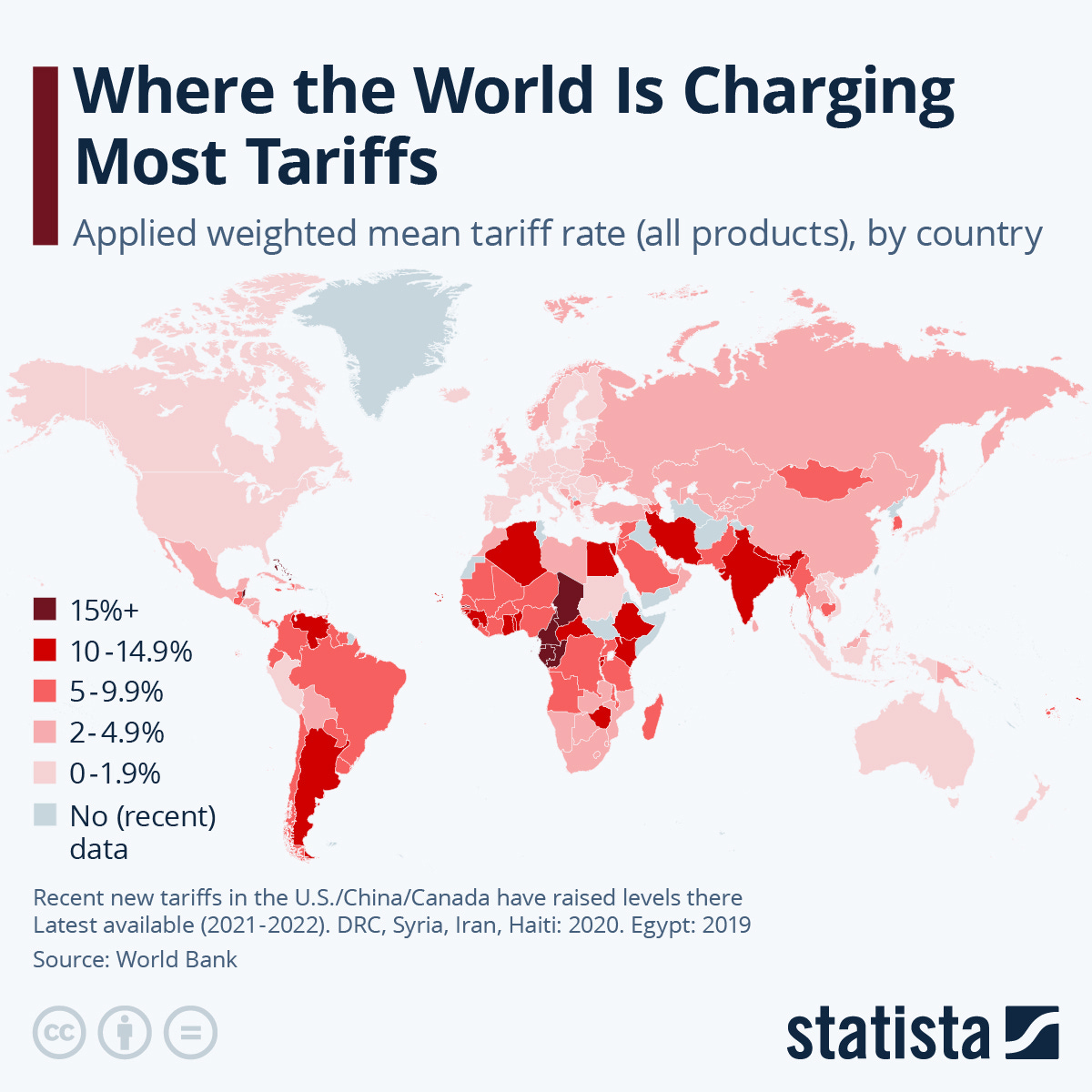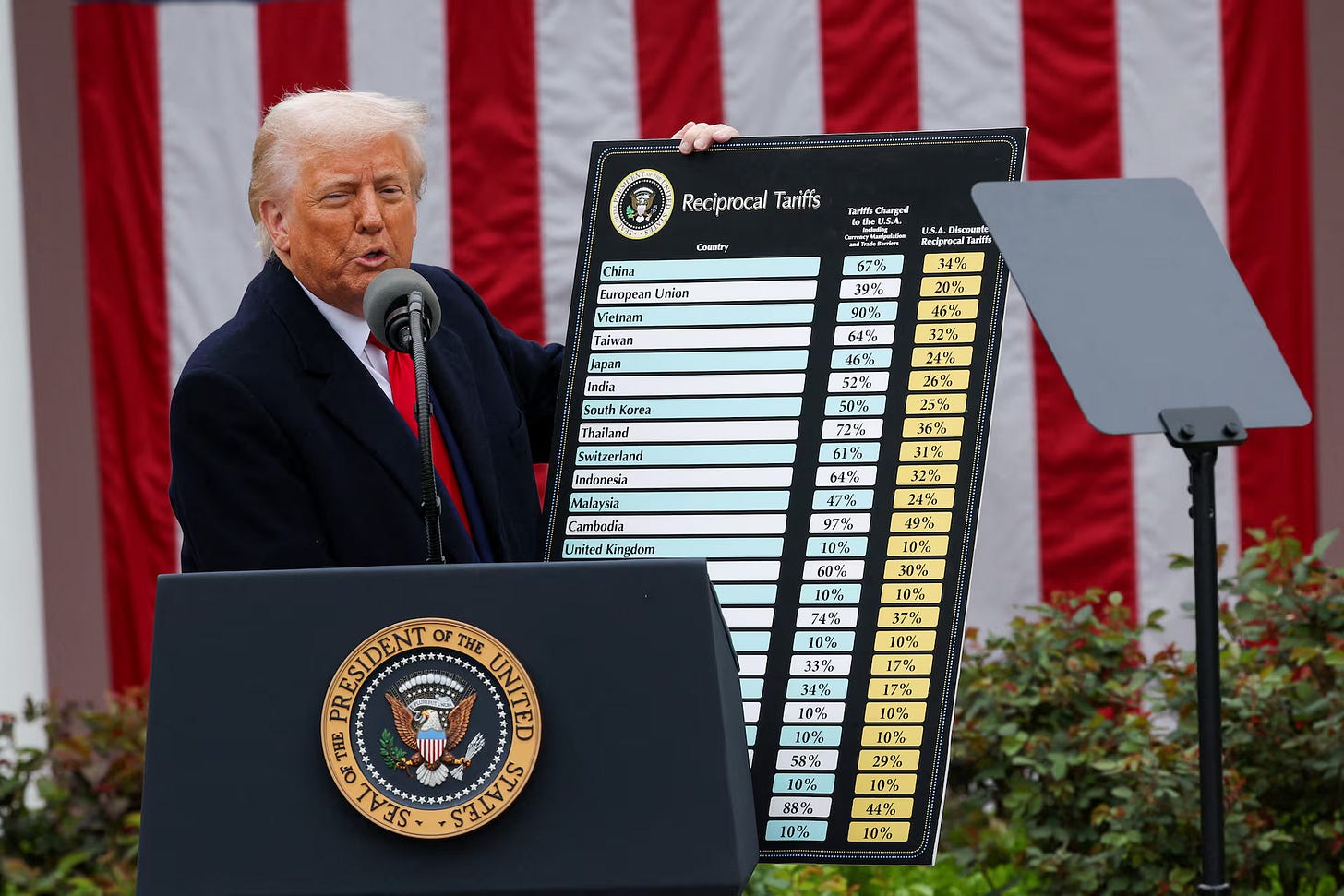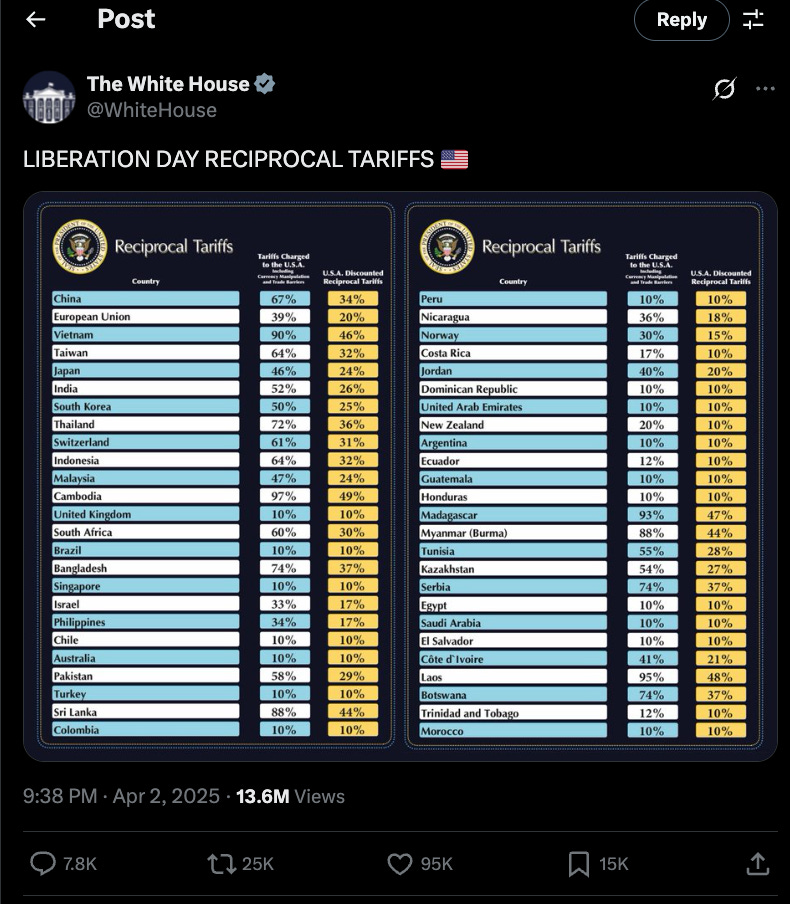Trump Slaps Tariffs on (Almost) Every Country – What Does This Mean for You?
America First, Wallets Last: How Trump's Tariffs Hit Everyone
Well, folks, it’s happening. Trump is making good on his promise to shake up global trade – by slapping tariffs on just about everyone. If you're wondering what that means, think of it this way: imagine you had a neighborhood lemonade stand, and the guy down the street suddenly started charging you a tax every time you bought lemons from him. That's what Trump is doing to imports.
The White House is calling this "Liberation Day" for American industry. But for the rest of the world (and American consumers), it might feel more like "Inflation Day."
What does this mean for you, your money, and the global economy? Let’s break it down—without the government jargon, because nobody’s got time for that.
What Are Tariffs, and Why Should You Care?
Tariffs are basically taxes on imported goods. When a company in the US buys a product from another country, the government now makes them pay extra.

Think of it like this: You own a sandwich shop, and you import fancy Swiss cheese. If the government slaps a 25% tariff on foreign cheese, suddenly, that cheese costs you a lot more. Do you:
A) Pay for it yourself and take the loss?
B) Raise the price of your sandwiches so customers foot the bill?
If you guessed B, you’re getting the hang of tariffs. Businesses almost always pass on the cost to consumers.
So when you hear "tariffs on China" or "tariffs on Europe," don’t think of them as taxes on foreign countries—think of them as taxes on you, the consumer.
Trump’s Tariff Playbook: A Crash Course
Donald Trump has been obsessed with tariffs for years. He’s called "tariff" his favorite word (which is saying something, considering his love for “huge” and “fake news”).
His goals?
Encourage Americans to buy American-made goods instead of imports.
Bring manufacturing jobs back to the US (in theory).
Raise government revenue (because tariffs = cash for Uncle Sam).
Fix America’s trade deficit, which is the gap between how much the US imports vs. exports.
For example, in 2024, the US had a $213 billion trade deficit with the European Union. Trump calls that an "atrocity." His solution? A 20% tariff on EU goods.
But here’s the problem: while tariffs might hurt foreign exporters, they also increase costs for American businesses and consumers. That’s why critics warn they could slow down the economy—or even trigger a recession.
What Tariffs Did Trump Just Announce?
Trump isn’t just tweaking trade policy—he’s launching an all-out tariff offensive. Here’s what’s happening:
Baseline Tariffs (Effective April 5, 2025)
A new minimum 10% tariff on all imports—yes, you read that right. Almost everything coming into the US will now be taxed.
This affects the UK, Argentina, Australia, Brazil, Saudi Arabia, and many others.
Higher Tariffs on ‘Worst Offenders’ (Effective April 9, 2025)
Some countries face even steeper tariffs, including:
China: 54% (including the existing 20%)
Cambodia: 49%
Vietnam: 46%
EU: 20%
Who's Exempt?
For now, Canada and Mexico aren’t on the list of new tariffs. But don’t celebrate just yet—they’re already dealing with a 25% tariff on steel, aluminum, and energy products.
One major question remains: how do these new tariffs interact with existing tariffs on steel, cars, and aluminum? So far, the White House hasn’t provided a clear answer.
The Real-World Impact: Get Ready for Higher Prices
Tariffs aren’t just a trade issue—they’re a wallet issue. Here’s how they could hit your daily life:
1. Prices on Consumer Goods Will Go Up
Electronics, clothes, cars, and even groceries could cost more because businesses will pass tariff costs on to consumers. That new iPhone? That European wine? That Japanese car? All potentially more expensive.
2. Businesses Will Take a Hit
Companies that rely on imports—whether it’s automakers, retailers, or tech firms—will have to pay more for materials or find alternatives. Some might cut jobs. Some might move production elsewhere.
3. Global Retaliation Is Coming
Other countries aren’t going to take this quietly. China, the EU, and others will likely impose tariffs on American goods in response—just like they did during Trump’s first trade war. That means US farmers, manufacturers, and exporters could face declining sales abroad.
4. The Risk of a Recession
Tariffs add pressure to businesses, squeeze consumers, and slow down trade. Some economists warn that this could trigger a recession—something Trump himself hasn’t ruled out. But Commerce Secretary Howard Lutnick says it’s “worth it” even if the economy takes a hit.
Wait—Didn’t We Try This Before?
Yes. And it didn’t end well.
In 2018-2019, Trump waged a trade war with China.
US tariff rates jumped from 1.5% to 7%.
It cost American consumers billions in higher prices.
It didn’t eliminate the trade deficit (in fact, it got bigger).
China retaliated with its own tariffs, hurting US farmers and businesses.
In 1930, the US passed the Smoot-Hawley Tariff Act.
It raised tariffs on over 20,000 goods.
Other countries retaliated, cutting off US exports.
It made the Great Depression even worse.
History tells us that trade wars tend to backfire—but here we are again.
Final Thought: Who Really Pays for Tariffs?
Trump wants to frame this as a win for American industry—a way to stop "cheaters" and put America first. But tariffs don’t just punish foreign countries.
They punish you—the consumer.
They punish businesses—who now have to make tough choices.
And they punish the economy—because protectionism often leads to retaliation, job losses, and economic slowdowns.
If history is any guide, this won’t be the last round of tariffs. And unless you work in an industry that benefits directly, expect one thing: higher prices, and an even messier global economy.
Buckle up. It’s going to be a bumpy ride.




This is dirty, but did anybody notice that trump looked like he was so excited by his tariffs he was jerking off to/on them? That’s what it looked like to me!
I never realized that American consumers have been thinking for decades that they were being pillaged, taken for suckers and raped while buying inexpensive foreign made clothes, shoes, cars, appliances, computers, phones, furniture, drapes, carpets, sheets and everything in the kitchen.
Why did they buy them if they thought that way?